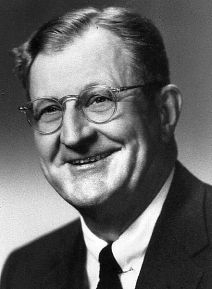Like the citizens of Garrison Keillor’s mythical city in Minnesota, Lake Wobegone, where 90% of the residents are in the top half of the class, 90% of today’s wealth managers continue their quest to find the top 10% of the wealthiest Americans.
It’s a tough search, and by all accounts, it looks like it will get even tougher.
The simple reason is that today’s economic system is creating fewer new wealthier people.
And while this poses problems for wealth managers, it is a much more significant and destructive problem for American society.
For an industry that loves data, here are some new numbers to ponder as they will affect your business as wealth managers:
- A new Harvard report finds that 51% of Americans between ages 18 and 29 do not support capitalism, Harvard researchers have found, while just 42% support it.
- A Federal Reserve Board study that asked respondents how they would pay for a $400 emergency found that 47% said they would cover the expense by borrowing or selling something or they would not be able to come up with the $400.
- In an article in the Atlantic, Edward Wolff, an economist at New York University, found that the median net worth of Americans has declined steeply in the past generation. It decreased 85% from 1983 to 2013 for the bottom income quintile, 63% for the second-lowest quintile, and 26% for the third, or middle, quintile.
- Research funded by the Russell Sage Foundation found that the inflation-adjusted net worth of the typical household (one at the median point of wealth distribution) was $87,992 in 2003. By 2013, it had declined to $54,500, a 38% decline.
- Nor are these dismal numbers restricted to lower- and idle-income people. Another study cited in the same Atlantic article found that nearly one-quarter of households making $100,000 to $150,000 annually said they would not be able to raise $2,000 monthly.
No New Wealth Spells Trouble for Wealth Managers
Now, we would assume wealth managers are concerned about finding new clients to generate their income. It would also be considered that their investment firm bosses are interested in expanding the number of wealthy people in the U.S. to perpetuate and expand their business. Sadly, this is not the case.
Financial services firms work against wealth creation in consistent, subtle ways, ranging from lobbying against any pro-investor disclosure provisions to supporting the increase in the minimum wage to publicly encouraging corporations to pay their share of federal taxes so average Americans would have more disposable incomes.
These are radical ideas for any corporation; anyone in any boardroom would lose their directorship position if they advocated it. The same would be true for most wealth managers, who would risk their career reputations.
Time to Learn About Neoliberalism
In the current presidential campaigns, income inequality has risen as a significant issue for most candidates to various degrees. But aside from politicians who have their versions of income inequality, the best

explanations come from political scientists who have identified neoliberalism as the main culprit over the past 30 or so years as the primary ideological source of the rise of corporatism, libertarianism, selfishness, austerity, income inequality, free market absolutism, and the belief that government is the enemy of the people.
But I would bet most people in the financial services industry have never heard of neoliberalism. This political science term has nothing to do with modern versions of being liberal.
Neoliberalism is a political philosophy that initially believed state-run, market-oriented companies and democratic institutions could create a new, stable, peaceful, inclusive political structure. However, to achieve these goals, neoliberalism relies heavily on intervention from the World Bank, the Bank for International Settlements, the International Monetary Fund, and the United Nations.
This political idea can be traced to political economist Karl Polanyi, who proposed in 1944 that the concept of freedom in modern society has various meanings, including the use of freedom for both good and bad causes, according to David Harvey’s book A Brief History of Neoliberalism (Oxford University Press, 2005).
One of the wrong causes of neoliberalism is that it creates wide income disparities, minimizes the role of unions, and promotes unfettered consumerism. While these deficiencies were well known, the advocates of neoliberalism (mostly wealthy, right-wingers, including the John Birch Society) masked the unique benefits to a few well-placed financial beneficiaries. They said that neoliberalism would expand individual liberties. This led to the idea that government was bad, states should take over more legislation, privatization of public facilities (airports, national parks, prisons, public utilities, etc.), and regulation in all forms was terrible.
In the U.S., the first significant test of neoliberal policies occurred during the fiscal problems of New York City during the Seventies. The darling of neoliberalism in the U.S. was President Ronald Reagan, who first applied neoliberalism in the U.S. in his effort to break trade union activism by firing the air traffic controller’s union in 1981. (In the UK, it was Margaret Thatcher.)
For people in the investment business, one of neoliberalism’s primary markers is the popularity of conservative Austrian economists Frederick Hayek, Ludwig Von Mises, and Milton Friedman. These economists were blindly free markets and promoted the benefits of selfishness as the antithesis of social welfare that originated in the New Deal. Neoliberalism also gained strength during the 1950s to combat communism and Russian expansionism.
The duplicity of all this is that Charles Koch’s father, Fred Koch, made millions working for Joseph Stalin by building and running five refineries in Russia that helped the dictator meet his first five-year plan, as described in “The Koch Brothers’ New Brand” in the New York Review of Books (March 10, 2016). Fred Koch then built over a hundred more refineries for Stalin. Fred Koch then worked for the Nazis by providing plans for a major oil refinery that produced fuel for the Nazi air force. Fred Koch admired the fascists and wrote in 1938 that Germany, Italy, and Japan were the “only sound countries in the world” since he hated the New Deal.
Years later, neoliberalism attracted the attention of the right wing in the U.S., including the John Birch Society and one of its primary benefactors, Charles Koch, who was one of the 11 founders of the John Birch Society, as cited in the book Dark Money by Jane Mayer (Doubleday, 2016). The Birchers were not only anti-communist but anti-government. By the 1970s, Koch founded the Center for Libertarian Studies in New York and wrote a paper on how a fringe movement could use secrecy to gain power. He neglected to say it would also be very well funded.
All this culminated publicly in 1980 when Koch ran as the vice president of the Libertarian Party on a terrifying platform that should be mandatory reading for all Republicans in 2016. The nation is in dire straits if they have anything in common with this 1980 Koch-Libertarian Platform.
Here are just a few excerpts of the Libertarian Party platform that David Koch ran on in 1980:
- “We urge the repeal of federal campaign finance laws and the immediate abolition of the despotic Federal Election Commission.”
- “We favor the abolition of Medicare and Medicaid programs.”
- “We oppose any compulsory insurance or tax-supported plan to provide health services, including those which finance abortion services.”
- “We also favor the deregulation of the medical insurance industry.”
- “We favor the repeal of the fraudulent, virtually bankrupt, and increasingly oppressive Social Security system. Pending that repeal, participation in Social Security should be made voluntary.”
- “We propose the abolition of the governmental Postal Service. In addition to being inefficient, the present system encourages governmental surveillance of private correspondence. Pending abolition, we call for an end to the monopoly system and for allowing free competition in all aspects of postal service.”
- “We oppose all personal and corporate income taxation, including capital gains taxes.”
The Message for Wealth Managers
Like most professionals in the financial services industry, wealth managers and financial advisors who meet with clients who have $25,000 in investable assets strive to do the right thing for their clients and even comply with the new DOL fiduciary disclosure rules.
However, there is much more to building a successful practice than knowing the benefits of alpha, asset allocation, effective tax strategies, and details of new products.
To be effective, financial professionals must know more about the political environment in which they work. This environment dictates the limits of their paying field and what shapes the lives of their clients and families when they leave the office.
This is why 51% of Americans between ages 18 and 29 do not support capitalism, and just 42% support it, according to a new Harvard study. What a growing number of Americans don’t like is unregulated capitalism, a central tenet of neoliberalism and right-wing Libertarianism, but something evident daily in the financial media in the form of stories about global price fixing in currencies, LIBOR, PIBOR, and the top-down fraud in the mortgage market.
One of the main reasons the 2008 recession still lingers is that Congress has adopted the neoliberal idea that Keynesian economics is the devil, so new public works programs can begin to provide jobs at the grass-roots levels. This worked in the past, but Republicans want to starve the government of funds and power, a phrase used by Nixon OMB appointee David Stockman,
In later years, Stockman, who resigned from the Nixon Administration in 1985, was so repentant that he told interviewers, “Trickle-down economics was a wish, not a reality. It’s never worked. Lower taxes don’t generate more revenue. They generate deficits.
According to Pierre Tristam, “Reagan knew it. So did Stockman. So did their guru, Friederich von Hayek. The deficits were intentional all along. They were designed to ‘starve the beast,’ meaning intentionally cut revenue to press Congress to cut the New Deal programs Reagan wanted to demolish. ‘The plan,’ Stockman told Sen. Daniel Patrick Moynihan at the time, ” was to have a strategic deficit that would give you an argument for cutting back the programs that weren’t desired. It got out of hand.” (Interestingly, von Hayek later distanced himself from Reagan’s misappropriation of his economics.)
This is now well known and should be to financial professionals, financial journalists, and elected politicians. However, the lies continue since the John Birch vision is unfulfilled. The unsuspecting public has not yet lost faith in the federal government and its services. When this happens, federal services can be more easily privatized. It is also a way for so-called political outsiders to become more popular since the complexities of running a global government in a global economy are dumbed down because negotiators cannot make great deals.
So, if you want to be a wealth manager in a nation with diminishing wealth, it’s time to break with financial industry corporate management and find a way to make the entire nation more wealthy. In any case, it’s clear that the current system of unregulated capitalism is not building a nation of more wealthy citizens.











